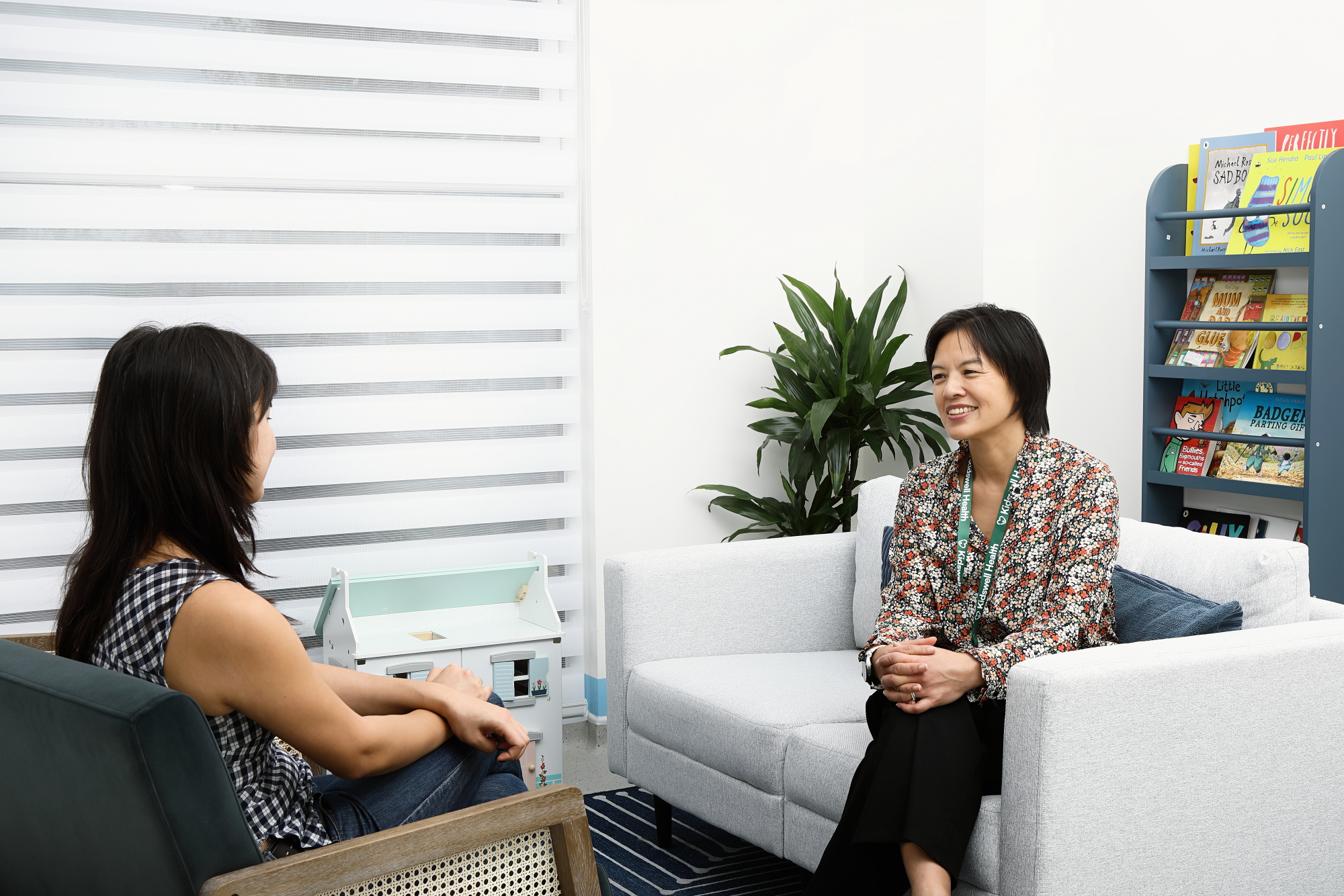A Simple Guide to Psychological Support for Children and Families



When a child is finding emotions, behaviour, learning or relationships difficult, parents often come across many different professional titles and therapy names. This can feel overwhelming. This guide explains the main roles and types of therapy in clear, straightforward language to help you understand what support might be right for your family.
Psychologists focus on children’s thoughts, emotions, behaviour and development. They use talking therapies, behaviour-based strategies and work closely with families. They do not prescribe medication.
Psychiatrists are medical doctors who specialise in mental health. They can diagnose mental health conditions and prescribe medication, and some also offer therapy.
In simple terms, psychologists provide therapy and assessment; psychiatrists can diagnose and prescribe when needed.
Clinical psychologists complete doctoral-level training and work with a wide range of emotional, developmental and behavioural difficulties. They carry out detailed assessments and use evidence-based therapies tailored to each child or young person. They work with children, teenagers, parents and families.
Counselling psychologists are also highly trained and combine psychological theory with counselling skills. They pay close attention to the therapeutic relationship and the child’s lived experience. They support everyday stresses as well as more complex emotional difficulties.
Educational psychologists usually work in school settings. They assess learning needs, cognitive strengths, attention, behaviour and emotional development, and often observe children in the classroom. They work with parents and teachers to offer practical strategies that support learning, behaviour, inclusion and emotional wellbeing. They also contribute to SEN planning and processes such as EHCP assessments.
Put simply, educational psychologists help children thrive in school by understanding their strengths and needs, and by supporting both families and teachers.
Psychology is a broad field that includes understanding development, behaviour and emotions, assessing children’s needs, and offering a range of evidence-based therapeutic approaches.
Psychotherapy is one type of talking therapy that focuses on feelings, relationships and personal patterns. It can be offered by psychologists, psychotherapists, counsellors or psychiatrists.
So, psychology covers assessment and many forms of therapy. Psychotherapy is one specific type of therapy within this wider field.
Psychotherapy refers to structured, relationship-based talking therapy. Because many different professionals offer it, the word is often used to describe talking therapy in general, rather than one single approach.
CBT (Cognitive Behavioural Therapy) helps children understand how their thoughts, feelings and actions are linked. It is structured, practical and skills-focused, and is often used for anxiety and related difficulties.
EMDR (Eye Movement Desensitisation and Reprocessing) is a structured therapy for trauma that uses eye movements or tapping to help children process difficult memories safely.
Psychodynamic psychotherapy explores how early experiences shape current feelings and behaviour. It helps children make sense of emotions that may feel confusing or difficult, and tends to be less structured and sometimes longer-term.
Family therapy works with the whole family or key family members to improve communication, understand patterns and strengthen relationships.
Behavioural or skills-based therapies focus on routines, strategies and practical techniques. They can be especially helpful for anxiety, sleep difficulties, ADHD-related challenges and emotional regulation.
Counselling provides a safe space to talk, explore feelings and think through problems. It is often used for emotional distress, stress, relationship issues and life changes.
Play therapy uses toys, stories and role-play to help younger children express their feelings and experiences in a way that feels natural to them.
Art therapy uses creative activities to help children communicate emotions, particularly when they find it easier to express themselves through images rather than words.
Different professionals bring different training and approaches. What matters most is finding someone with the right expertise for your child’s needs, and an approach that feels helpful and supportive for your family. Above all, therapy works best when there is a strong, trusting relationship between the therapist and the child or young person.
At Kidswell Health, our team of child psychologists, psychiatrists, and therapists provide evidence-based care for a wide range of emotional and behavioural difficulties, from anxiety and low mood to trauma and behavioural challenges at home or school.
We offer:
How it works
We’re here to help your child feel happier, more resilient, and ready to thrive at home, at school, and beyond.
Get in touch to book your free consultation today.
☎️020-3011-1843
📧 reception@kidswellhealth.com
What kind of mental health support do you offer for children?
We offer a stepped approach to psychological support, starting with an Initial Consultation to understand your concerns, followed by more in-depth assessments if needed. Our team includes experienced child psychologists and child psychiatrists who can support a wide range of emotional, behavioural and developmental challenges.
What if I don’t know what psychological health support my child needs?
We offer free initial consultations which will be 10-15 minute phone call with one of our clinicians to briefly discuss your concerns and help guide next steps. This is an ideal step to take if you’re unsure where to begin or whether your child needs further support.
What mental health conditions do you help with?
We support children and young people with a wide range of emotional, behavioural and mental health difficulties. This includes (but is not limited to) anxiety, low mood, OCD, sleep difficulties, behavioural concerns, emotional regulation challenges, social difficulties, trauma, school refusal, and difficulties related to neurodevelopmental conditions such as ADHD or autism. If you’re unsure whether we can help, we recommend booking a free Initial Consultation to discuss your concerns.
Are these services part of the Kidswell Health membership?
Psychological health services are offered in addition to our membership plans and are charged separately. However, members recevie a significant discount. We’ll always provide clear information about costs before any assessment or treatment is booked.
Can I use my insurance to cover psychological services?
Some private insurers may reimburse part or all of the cost of psychological assessments or therapy. We recommend checking with your provider directly. We’re happy to supply receipts or reports for reimbursement where needed.
What age range do you support?
Our psychological services are available for children and adolescents, typically from toddler age through to late teens. If you’re unsure whether your child is eligible, please get in touch and we’ll be happy to advise.
What qualifications do your clinicians have?
Our team includes fully qualified and registered child psychologists and child psychiatrists with extensive experience supporting children and families. All clinicians are vetted and regulated by the appropriate UK professional bodies.
Will I receive a written summary or report?
Yes, following the Exploratory or Deep Dive Assessment, you’ll receive a brief summary of the discussion and recommendations. For more formal reports (e.g. for schools or referrals), an additional fee may apply.
Can I stay with my child during the appointment?
Yes. In most cases, we encourage parents or carers to attend with their child. For older children or teenagers, we may speak with them separately for part of the session, depending on what’s most appropriate and comfortable for them.
What if my child needs ongoing therapy or psychiatric treatment?
If ongoing care is needed, we can connect you with our in-house therapists or psychiatrists or recommend trusted external specialists. We’ll help you find the right path forward based on your child’s unique needs.

Marielle is a highly experienced Chartered Clinical Psychologist and Clinical Lead of the Mental Health Team at Kidswell Health.
Learn about RSV symptoms, causes, and treatment. Understand how to spot signs early, protect your baby and when to seek…
Learn the symptoms, causes and treatment of RSV in babies, plus expert advice on how to protect your child this…
By Debra Silver, Paediatric Physiotherapist at Kidswell Health Watching your baby reach new milestones is one of the most exciting…
Learn about positional talipes in newborns and babies: causes, treatment, recovery time, and how physiotherapy at Kidswell Health can help.
Dr Mitsu Shah explains common side effects of baby vaccinations.
Dr Mitsu Shah shares expert tips to prepare for your baby’s first vaccination.